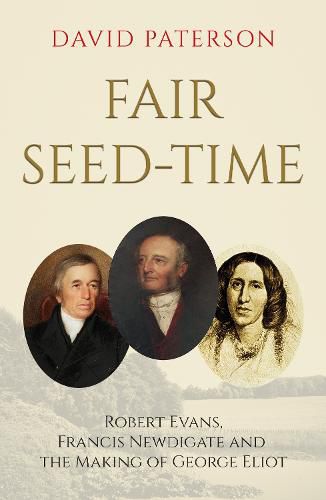Readings Newsletter
Become a Readings Member to make your shopping experience even easier.
Sign in or sign up for free!
You’re not far away from qualifying for FREE standard shipping within Australia
You’ve qualified for FREE standard shipping within Australia
The cart is loading…






Fair Seed-Time is a major re-interpretation of the historical background to the writings of George Eliot. It rejects several oft-repeated myths about the early 19th Century Midland world in which George Eliot grew up, emphasises the importance of a previously neglected character in that world, Francis Newdigate, and provides a detailed insight into the life of Eliot’s father, Robert Evans. It shows how he rose socially throughout his life and how he played a significant role in the professional development of early 19th Century Land Agents. It provides detailed and carefully-argued evidence to illustrate how his life and work profoundly influenced George Eliot’s novels, from which there are many quotations.
The author has delved into previously unread historical diaries and many other original and previously little used sources to bring alive the rapidly changing economic and social world of the early nineteenth century in general and north Warwickshire in particular. The result will be of interest both to general and local historians of this period, those concerned with the evolution of land agency as a profession, and to all students of literature, and especially George Eliot scholars, because of the fresh insights into her work.
$9.00 standard shipping within Australia
FREE standard shipping within Australia for orders over $100.00
Express & International shipping calculated at checkout
Fair Seed-Time is a major re-interpretation of the historical background to the writings of George Eliot. It rejects several oft-repeated myths about the early 19th Century Midland world in which George Eliot grew up, emphasises the importance of a previously neglected character in that world, Francis Newdigate, and provides a detailed insight into the life of Eliot’s father, Robert Evans. It shows how he rose socially throughout his life and how he played a significant role in the professional development of early 19th Century Land Agents. It provides detailed and carefully-argued evidence to illustrate how his life and work profoundly influenced George Eliot’s novels, from which there are many quotations.
The author has delved into previously unread historical diaries and many other original and previously little used sources to bring alive the rapidly changing economic and social world of the early nineteenth century in general and north Warwickshire in particular. The result will be of interest both to general and local historians of this period, those concerned with the evolution of land agency as a profession, and to all students of literature, and especially George Eliot scholars, because of the fresh insights into her work.